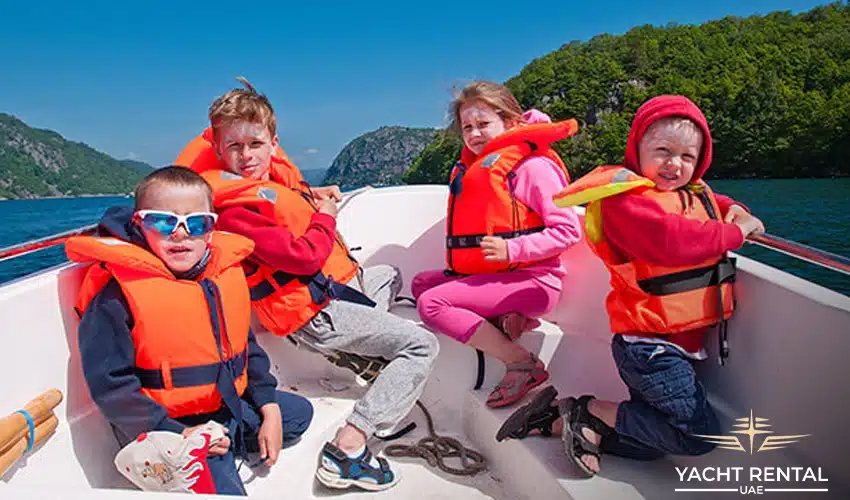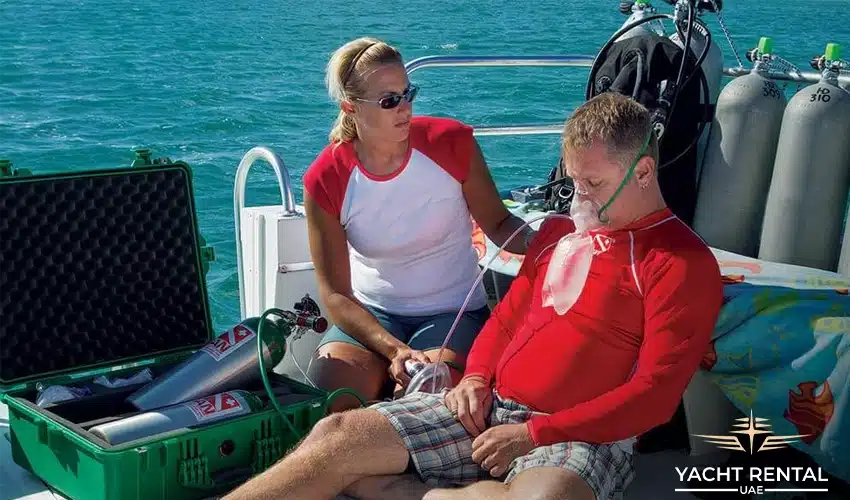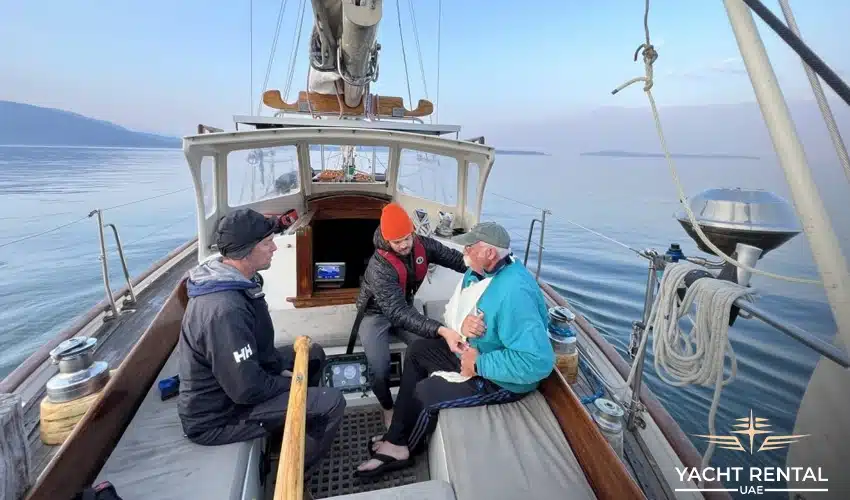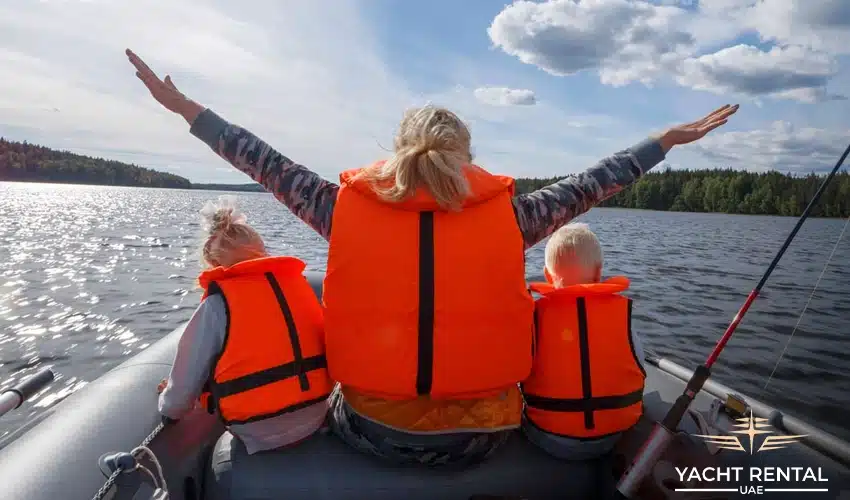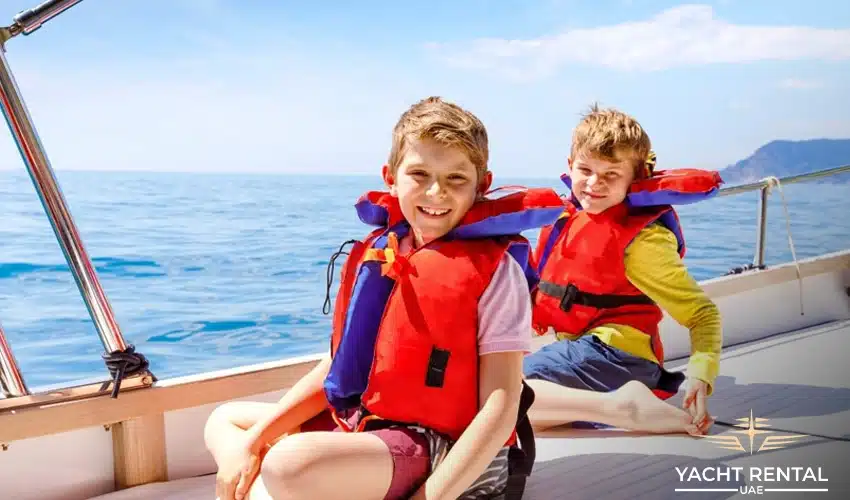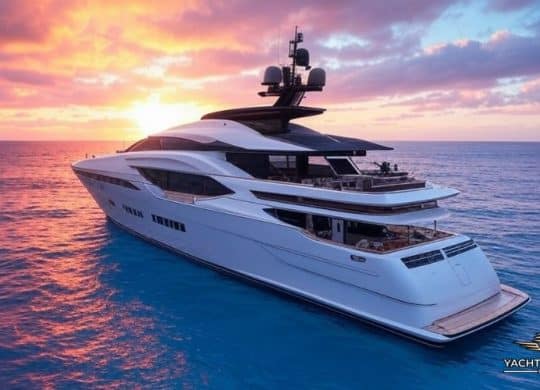Legal Obligations of Boat Operators
Boat operators in the UAE have legal obligations to assist injured people in an accident. The Federal Maritime LAW No. 26 outlines these obligations. The UAE’s maritime laws require boat operators to provide immediate help to injured people if it is safe.
It includes stopping the boat or yacht, examining the situation, and offering aid. The law focuses on the significance of safety for the injured parties and the boat’s passengers. As a boat operator, you must assist in various scenarios, such as:
| Collisions | If your boat or yacht collides with another vessel, you must stop and help injured individuals. |
| Man Overboard | You must attempt a rescue if someone falls overboard. |
| Medical Emergencies | You must aid or seek professional help if a passenger suffers a medical emergency. |
Steps to Take When Assisting Injured Individuals
As a boat operator, you must know the right steps to take when helping injured people. It can make an important difference in an emergency. For instance, what should you do if a fire breaks out in the front of your boat? Or what if the boat collides with another vessel? Immediate actions to take after an accident are:
- Stop your boat to prevent further accidents and ensure everyone’s safety.
- Assess the gravity of injuries and the overall situation.
- Check if it is safe to assist people without putting yourself or others in danger.
- Secure the area by ensuring the accident scene is safe.
- Move injured people to a safer location if possible.
How to Provide First Aid and Other Forms of Assistance
Once you have ensured safety, it is time to provide first aid. Focus on the basic first aid. For instance, administer the basic first aid if you are a trained professional. It includes stopping bleeding, performing CPR, and treating minor injuries.
Besides, you must encourage the injured people to stay calm and comfortable. Reassure them that help is on the way. Use the first aid kit on your yacht or boat to address immediate medical needs. After providing initial assistance, you must contact emergency services.
You can call the local coast guard or emergency number for professional assistance. Provide UAE’s coast guard with detailed information about the accident and conditions of the injured passengers.
Consequences of Failing to Assist
Failing to assist injured people in a boating accident can have severe legal consequences, especially in the UAE. You may face fines, penalties, or imprisonment for your negligence as a boat operator.
The government or the court of law can hold you liable for further harm that results from your failure to assist. It is especially important for the size of a yacht, as large vessels have more strict regulations.
In addition to legal repercussions, there are important ethical and moral considerations. Helping needy people is a fundamental human responsibility. When is a boat operator required to assist anyone injured in an accident? The answer is clear: always, when it is safe.
Neglecting your duty endangers people’s lives and undermines the trust of the boating community in the UAE.
Tips for Boat Operators to Ensure Safety
Ensuring safety on the water is important for a boat operator. How can you prevent accidents? What are the best ways to prepare yourself for emergencies? Do you know the significance of safety training and equipment? In this section, I will discuss these crucial aspects so you have reliable information you can use in the future to ensure safety.
Best Practices for Preventing Accidents
Some of the best practices for preventing accidents are:
- Regular maintenance
- Weather awareness
- Safe speed
- Life jackets
- Avoid alcohol
Regular Maintenance
Perform regular maintenance checks to keep your boat in top-notch condition. Inspect the engine, electrical systems, and the hull. Regular maintenance is vital for preventing mechanical failures. Not maintaining your boat or yacht can lead to accidents. Find information about the cost of maintaining a yacht or boat and decide on your budget.
Weather Awareness
Checking the weather forecast is very important before heading out. Sudden weather changes can cause problems. Sometimes, storms, heavy rain, etc., can become severely dangerous, increasing accident chances. Therefore, keep yourself prepared. I recommend postponing your trip if the forecasts are bad weather conditions.
Safe Speed
Check to decide if the speed is safe for your boat. Remember, you must operate your boat at a safe speed, especially near the shore or in crowded areas. High speeds can elevate the risk of collisions and accidents. Likewise, boat operators may find it challenging to react to unexpected obstacles. Therefore, maintaining an optimal boat speed is necessary.
Life Jackets
Don’t operate your boat if you don’t have a life jacket for yourself and the passengers. Make sure all passengers always wear life jackets. These are essential for your safety and can reduce the risk of losing your or passengers’ lives in the event of an accident.
Avoid Alcohol
Never drink alcohol when operating a boat. It is illegal in the UAE and other countries because this activity can become extremely dangerous. Alcohol reduces your ability to judge a specific situation. It also impairs your brain function, preventing you from properly reacting to a harsh situation. Thus, this increases the risk of boat accidents.
How to Be Prepared to Assist in Case of an Emergency
- Always have an emergency kit, including first aid supplies, a whistle, a flashlight, and flares.
- Have a fully charged mobile or smartphone or a VHF radio.
- Understand the best place to store a fire extinguisher near the helm or in the galley.
- Develop a float plan with a family member or friend before setting out. Plan the route, departure, and return time.
- Conduct safety drills with your boat’s passengers.
Importance of Safety Training and Having the Right Equipment on Board
I always recommend boat operators to take a boating or yachting safety course.
It teaches you essential skills, including navigation, emergency procedures, accident preparedness, and the rules of the water. Besides, you must equip your yacht or boat with all necessary safety gear. The safety gear includes fire extinguishers, life jackets, flares, and a first-aid kit. Check the equipment regularly and ensure each is in good working order and easily accessible.
You must familiarize yourself with your boat’s layout and equipment. Whether you have a small fishing boat, passenger vessel, or an explorer yacht, understanding the location of everything and how each tool operates is important for handling emergencies or accidents.
Final Words About Boat Operators’ Role During an Accident
The bottom line is that your primary responsibility as a boat operator is to ensure the safety of passengers. You must prepare yourself for assistance in emergencies, understand and follow legal obligations, and keep your vessel well-equipped and maintained.
